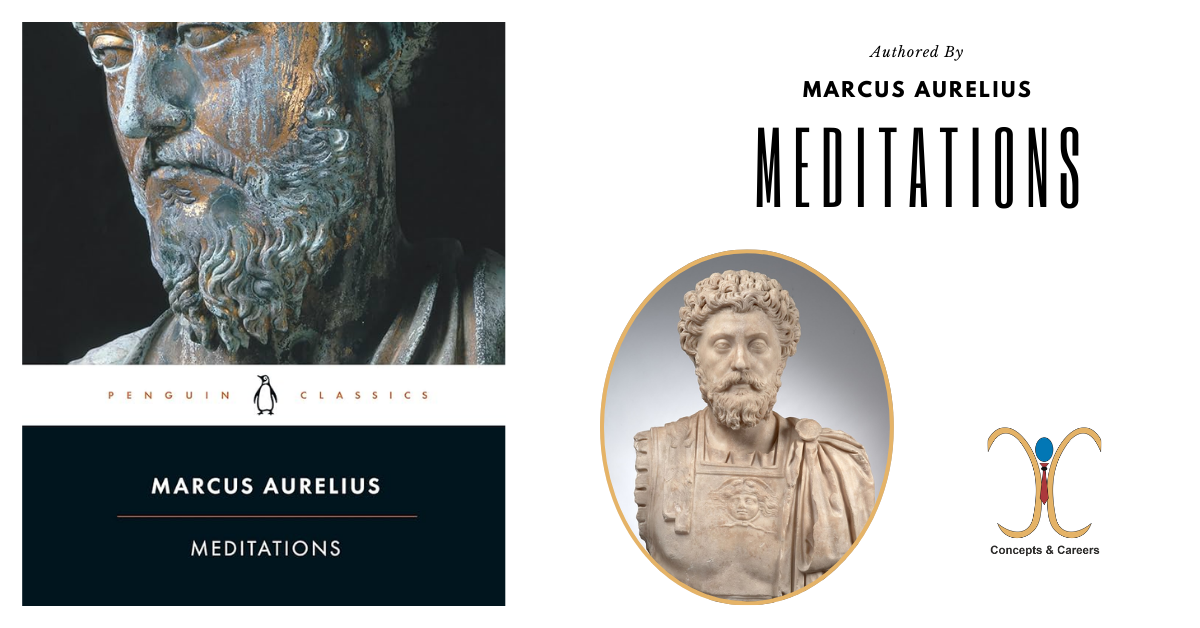- Have any questions?
- [email protected]
Stoic Philosophy Wisdom Unveiled: A Comprehensive Analysis of “Meditations” by Marcus Aurelius

Sustainable Careers: Embracing Green Jobs and the Impact of Environmental Awareness on Career Choices
July 29, 2024
Staying Updated with Industry Trends in Digital Marketing
August 2, 2024“Meditations” by Marcus Aurelius stands as a timeless testament to the wisdom and philosophy of Stoicism. Composed as a series of personal reflections and philosophical musings, this revered work offers profound insights into human nature, ethics, and the pursuit of inner tranquility. In this article, we’ll explore the key themes, principles, and teachings of “Meditations,” and delve into how Marcus Aurelius’ words continue to resonate with readers centuries after they were first penned. It gives a dive into Stoic Philosophy.
1. Stoic Philosophy Unraveled:
At the heart of “Meditations” lies the philosophy of Stoicism, a school of thought that emphasizes virtue, rationality, and resilience in the face of adversity. Marcus Aurelius draws upon Stoic principles to navigate the challenges of his life as a Roman emperor, offering timeless wisdom that transcends the boundaries of time and culture. Central to Stoicism is the concept of living in accordance with nature, accepting the world as it is, and focusing on what is within one’s control.
2. The Dichotomy of Control:
One of the central tenets of Stoicism explored in “Meditations” is the dichotomy of control. Marcus Aurelius reminds us that while external events are beyond our control, we have the power to control our thoughts, attitudes, and actions. By cultivating inner strength and resilience, individuals can find peace and contentment regardless of external circumstances. This principle serves as a guiding light for navigating life’s ups and downs with grace and equanimity.
3. Virtue as the Highest Good:
Marcus Aurelius extols the virtues of wisdom, courage, justice, and temperance as the highest goods in life. He emphasizes the importance of cultivating virtue as a means to achieve inner harmony and fulfillment. Rather than seeking external validation or material wealth, Aurelius encourages readers to prioritize the development of moral character and integrity. In the pursuit of virtue, one finds true happiness and meaning.
4. Acceptance and Impermanence:
Another key theme in “Meditations” is the acceptance of life’s impermanence and the inevitability of change. Marcus Aurelius reminds us that everything in the universe is in a constant state of flux, and clinging to things beyond our control only leads to suffering. Instead, he encourages a mindset of acceptance and detachment, allowing us to find peace amidst life’s uncertainties. By embracing the transient nature of existence, we can live more fully in the present moment.
5. The Importance of Self-Reflection:
“Meditations” is, at its core, a journal of self-reflection and introspection. Marcus Aurelius offers readers a glimpse into his inner thoughts and struggles, inviting them to engage in their own journey of self-discovery. He encourages regular reflection on one’s actions, values, and beliefs as a means of personal growth and self-improvement. Through introspection, individuals can cultivate greater self-awareness and align their lives with their highest ideals.
6. Gratitude and Mindfulness:
Gratitude and mindfulness are recurring themes throughout “Meditations.” Marcus Aurelius urges readers to cultivate a sense of gratitude for the blessings in their lives, no matter how small. By practicing mindfulness and appreciating the present moment, individuals can find joy and contentment in the simple pleasures of life. Aurelius reminds us that happiness is not found in external possessions or achievements. It lies in our ability to savor the beauty of existence.
“Meditations” by Marcus Aurelius continues to inspire and resonate with readers centuries after its composition. Through its timeless wisdom and profound insights, this classic work offers a blueprint for living a life of virtue, resilience, and inner peace. As we navigate the complexities of the modern world, the teachings of Stoicism remind us to focus on what is within our control, cultivate moral character, and embrace life with gratitude and acceptance. In a world marked by uncertainty and change, “Meditations” serves as a guiding light, illuminating the path to a life of wisdom and fulfillment. This is a brief about Stoic Philosophy.





